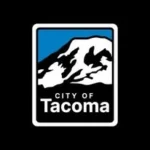- Home
- News
Tacoma Newsroom: Your Source for Tacoma News and Information

Fireworks Safety and Summer Blast on July 4

Pride Month 2025 in Tacoma

Book Titles Announced for Tacoma Reads 2025

Tacoma Venues & Events Issues Call to Artists for Tacoma Dome Public Art Installation
Latest News
80 Arts, Culture, Heritage, and Science Organizations Funded by Tacoma Creates for 2025-2026
City of Tacoma Unveils New Pride Crosswalk, A Vibrant Symbol of Inclusivity and Community Pride
South 21st Street Reopens on July 3 After Completion of Prairie Line Trail Phase II Enhancements
Street Closure on Broadway Between 9th and 11th Streets on June 30 and July 1
City Navigates Leadership Transitions While Maintaining Unwavering Commitment to Community Service
Traffic Control Measures on Ruston Way Scheduled June 25 – July 2
25 Artists Funded by the Tacoma Arts Commission
Celebrate Tacoma’s Top Volunteers and Service Providers at the 2025 City of Destiny Awards
No Impact to Garbage, Recycling and Yard/Food Waste Pick-Ups on June 19
-
Department Name Email Phone Mayor and Council Maria Lee maria.lee@tacoma.gov (253) 534-5915 mobile
(253) 591-2054 deskTacoma Police Department Shelbie Boyd sboyd@tacoma.gov
TPD-PIO@tacoma.gov(253) 405-7134 mobile
(253) 591-5968 main deskTacoma Fire Department Chelsea Shepherd cshepherd@tacoma.gov (253) 948-7363 mobile Tacoma Public Library Mariesa Bus mbus@tacomalibrary.org (253) 457-1867 mobile
(253) 280-2882 deskTacoma Public Utilities Jessica Wilson jwilson2@tacoma.gov (253) 753-3119 mobile
(253) 502-8117 deskTacoma Venues and Events Hillary Brenner hbrenner@tacomavenues.org (253) 257-5540 mobile
(253) 593-7625 deskAll Other Departments Maria Lee maria.lee@tacoma.gov (253) 534-5915 mobile
(253) 591-2054 desk
Tacoma Videos
Watch the Latest City Council MeetingTV Tacoma
Learn MoreWhile the core mission of TV Tacoma is to provide transparency for local government via our meeting coverage, we also focus our cameras on the local community. TV Tacoma’s programming is designed to convey important information from the City to the community and to reflect the community itself, highlighting its achievements, activities, and people. Either through our produced programming or live reports, TV Tacoma works to build civic pride and highlight what makes Tacoma a great place to live, work, and play.
Social Feed
🛼Founded in 2005, Tacoma’s very own Dockyard Roller Derby has grown into a fully functional skater-run, non-profit organization. Learn more about this truly Tacoma pastime and how you can participate, on or off the rink, in this new segment of the 253.
💙☕ Join #TacCouncil Member Sandesh Sadalge at Patsy Surh Place on Thursday, July 24, 2025, from 9:30 - 10:30 AM for a coffee chat! All District 4 residents are invited to attend, and no RSVP is required. Share your thoughts, concerns, and hopes for Tacoma at this casual event designed to help ...inform future Council work.
⬇️
Event Details:
Coffee Chat with Council Member Sandesh Sadalge
Date: July 24, 2025
Time: 9:30 - 10:30 AM
Location: Patsy Surh Place (3740 G Street in Tacoma)
Join Council Member Sandesh Sadalge at Patsy Surh Place on Thursday, July 24, 2025, from 9:30 - 10:30 AM for a coffee chat! All District 4 residents are invited to attend, and no RSVP is required. More info in the event page below. ⬇️
🌈✨❤️💖 This evening, the #TacCouncil proudly proclaimed July 2025 as LGBTQIA2S+ Pride Month, celebrating our vibrant community and affirming our commitment to inclusivity and equality for all. Join us in honoring this month of pride and unity! For a full list of events, visit ...@rainbowcntr to learn more.
📸 Troy Christensen, Board President of the Rainbow Center; Mary Woodard, Education Manager at the Rainbow Center; Joanne Levy, Director of Operations at the Rainbow Center; Rochelle Gandour-Rood, Education Outreach Manager and Sustainability Liaison for @mytpu; and Chris Larsen, Senior Utility Services Representative at Tacoma Power.
#Tacoma #tacomawa #PrideMonth #TacomaPride #LGBTQIA2S+ #HappyPride #LoveIsLove
🌈✨❤️💖 This evening, the Tacoma City Council proudly proclaimed July 2025 as LGBTQIA2S+ Pride Month, celebrating our vibrant community and affirming our commitment to inclusivity and equality for all. Join us in honoring this month of pride and unity! For a full list of events, visit ...https://www.rainbowcntr.org/.
📸 Troy Christensen, Board President of the Rainbow Center; Mary Woodard, Education Manager at the Rainbow Center; Joanne Levy, Director of Operations at the Rainbow Center; Rochelle Gandour-Rood, Education Outreach Manager and Sustainability Liaison for Tacoma Public Utilities; and Chris Larsen, Senior Utility Services Representative at Tacoma Power.
🔴As a reminder, the Tacoma City Council Meeting begins at 5:00 PM on Tuesday, July 1, 2025. Here's a link to agenda: https://ow.ly/5xE350WizQo. This meeting will be hybrid, in-person meeting at the Tacoma Municipal Building Council Chambers and virtually via Zoom. To join via Zoom, use this... link: https://ow.ly/XhS350VN9cB and passcode: 349099 or dial (253) 215-8782 using Meeting ID: 848 3423 3126. The meeting is also live streamed at tacoma.gov/councilmeetings broadcast live on TV Tacoma.
🏳️🌈 Tacoma kicked off #PrideMonth with style & love! We started the day by raising the Pride Flag over the @thetacomadome and other City buildings, and just wrapped with a celebration of our new Pride crosswalk in Downtown #Tacoma on Broadway between 9th and 11th St.
🏳️🌈 Tacoma kicked off Pride Month with style and love! We started the day by raising the Pride Flag over the Tacoma Dome and other City buildings, and just wrapped with a celebration of our new Pride crosswalk in Downtown Tacoma on Broadway between 9th and 11th Street.
🎨🏆Two weeks left to nominate a local artist or patron who deserves recognition for an AMOCAT Arts Award! There are three award categories (below ⬇️), and nominations are due by July 15, 2025.









